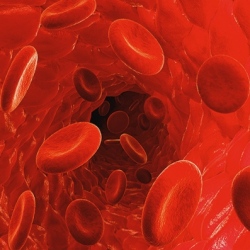
Researchers claim to have developed a single test that is able to identify past exposure to every known human virus infection, using a drop of blood. The technique decodes the infection history imprinted in our immune response. The scientists hope that the test will eventually provide important insight into how viruses contribute to development of a range of diseases.
During a virus infection, your immune system generates antibodies designed to fight the virus. Each antibody recognises a tiny fragment of the virus and their interaction is very specific – they fit like a lock and key.
Virus-specific antibodies can be long-lived; often persisting many years after an infection has disappeared. So, your antibody repertoire represents a historical record of all of the viruses that have infected you.
This immunological catalogue has been used for years to identify past virus exposure, but the diagnostic tests routinely used have been limited to one, or at most a few, different virus strains.
Prof Stephen Elledge from the Harvard University Medical School US, who led the research team, told Science in Action that the new technique will overcome this limitation: "You can ask questions about all viruses rather than have to do things one at a time, so it allows you to discover connections between different populations or different diseases amongst groups of people. "Now that we can look at all viruses, it’s a complete game-changer."
Researchers have been working out the genetic sequence – the blueprint – of all human viruses for many years. The team used this information to generate a pool of bacteriophage – viruses that grow easily in the laboratory – with each bacteriophage expressing a tiny fragment of this human-virus blueprint on its surface.
Antibodies present in a drop of human blood could then be used as bait to go fishing in this phage pool – only bacteriophage that express protein fragments recognised by the antibodies in the blood sample will be caught. Sequencing the bacteriophage DNA reveals the human viruses that an individual has been exposed to.
